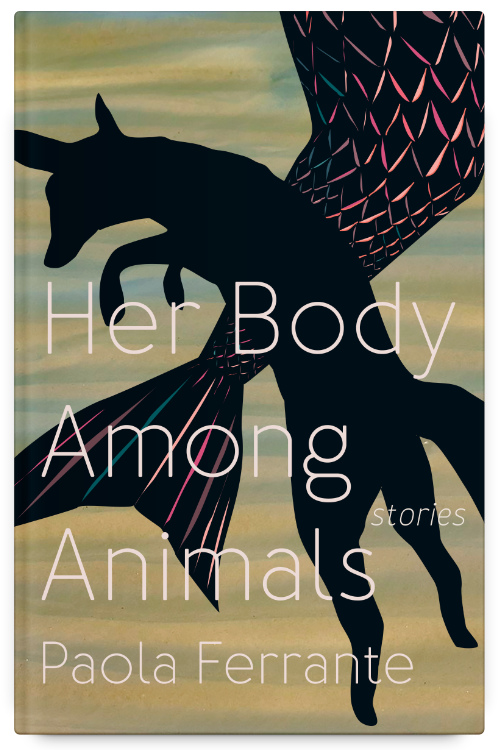
Her Body Among Animals
Paola Ferrante, 264 pgs, Book*hug, bookhugpress.ca, $23
Over the past few years Toronto writer Paola Ferrante has published several taut, visceral poems exploring violence against women in language drawn from her broad reading in science and her interest in genre film. Unfortunately, Ferrante’s debut short story collection finds many of her strengths in verse transformed into liabilities in prose. Literary conceits that hold the reader’s interest over a 40-line poem can feel laborious stretched over a 4,000-word story; the habit of treating every word as something precious leads her to constructions like “beat them into proneness” when a simple “knocked down” would do.
Debuts can be ruthless in exposing a writer’s crutches, the sorts of pet metaphors and devices that may intrigue in a single story but read as irritating stylistic tics when encountered over a body of work. There is seemingly no situation a Ferrante narrator will not relate to a point of arcane science trivia. Here’s one character responding to being called a “bookworm”: “The characteristics of Caenorhabditis elegans don’t include imbibing fermented beverages with male Homo sapiens, despite not being able to drown.”
Nearly every story hinges on an animal-as-metaphor gimmick (e.g mental illness as albatross) with a supporting intertextual reference (e.g. Hitchcock and Tippi Hedren’s relationship shooting The Birds). The thing about metaphors is they only tend to bind the otherwise unalike things they compare in a shallow respect (e.g. both albatrosses and mental illness feel heavy). When metaphor becomes the primary vehicle for storytelling, the device soon feels forced.
Some of the technical issues in the text could’ve been helped by a more assiduous editor, but the bigger issues come down to Animals’ basic conceit. It’s telling that the most successful effort here is the brief, somber “Pandora,” which describes the 2018 Toronto terrorist van attack from a victim’s perspective with the clarity that comes from considering a subject directly.
